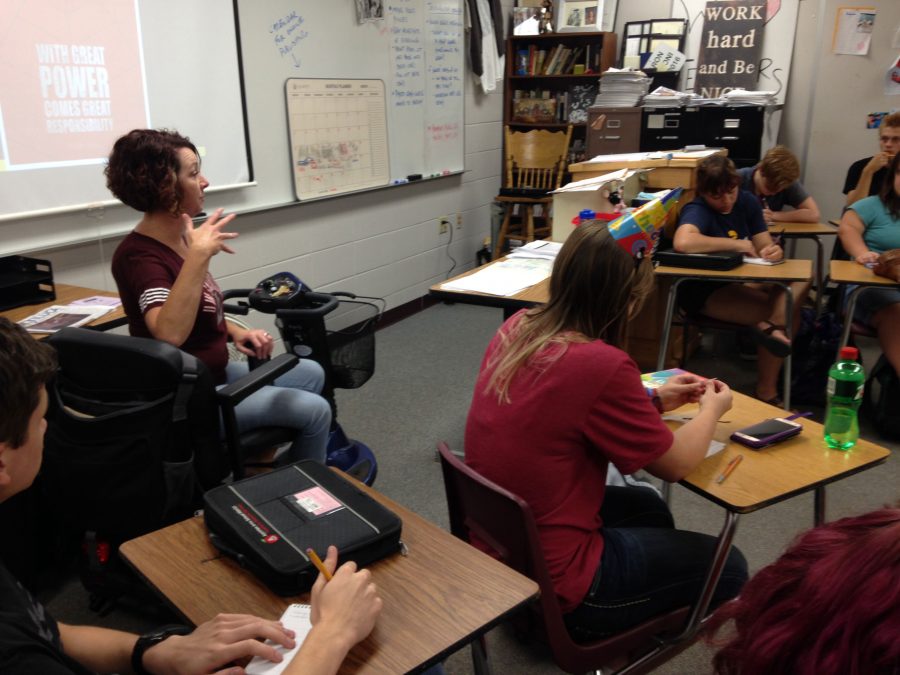Teacher urges students to reconsider unsanctioned dress-up day theme
Math teacher with muscular dystrophy says ‘Senior Citizen Day’ makes ‘mockery’ of people with disabilities
Ms. Janeal Lee, a math teacher at North who has Muscular Dystrophy, presents to the North Journalism class about why the homecoming tradition of “Senior Citizen Day” should end.
September 20, 2016
For many, homecoming week is filled with traditions, but a North teacher with muscular dystrophy is asking students to challenge one of those traditions: the unofficial dress-up day where North seniors pretend they are senior citizens.
“You don’t know how things can impact someone until you’re told about it,” said Ms. Janeal Lee, a North math teacher, speaking about the impact of “Senior Citizen Day.”
Ms. Lee, who uses a scooter to travel through school because she does not have enough muscle strength to walk during the school day, has been a lifelong advocate for people with disabilities and continues to spread awareness through presentations and by talking to students. She works to tell students of her experience with a physical disability so others can understand its impact.
At the age of 15, Ms. Lee was diagnosed with muscular dystrophy, which causes her muscles to slowly deteriorate. Today, Ms. Lee has to be especially careful as she moves throughout her classroom; because her balance is impaired, when she is not using her scooter she also has started using a cane.
When Ms. Lee started working at North, she wasn’t quite sure what was going on when she witnessed the dress-up day. “I saw the humor in it the second year, but it always bothered me,” she explained. Even though Ms. Lee was bothered by this event, she excused it as a way for students to have fun during their last year at North.
The “Senior Citizen Day” dress-up theme is not sanctioned by school administration, and student services can address issues of students who are dressing in a manner that is disruptive or questionable. Still, many seniors participate with the unsanctioned theme. Wednesday’s official spirit day theme, determined by Student Council, is “Fashion Disaster Day.”
Last year, the unsanctioned dress-up day escalated to the point of offense, Ms. Lee said. When she arrived at school, she saw students unloading their cars with wheelchairs, walkers, and canes. “I wanted to turn around,” she said, explaining that the sight of people using mobility devices as props made her emotional.
“It’s almost like a mockery for people with a physical disability,” she said.
Today, she advocates for a new tradition, one that is more inclusive to all students. She said that students who participated in the unofficial dress-up day but do not use wheelchairs, walkers, and canes was a step in the right direction, but said “ideally” the entire theme should stop.
“I don’t want people to tolerate something, I want them to be accepting and aware,” she said, ending with a question for the North community: “Now that you have this information, what will you do with it?”
Jake Zajkowski contributed to this report.



